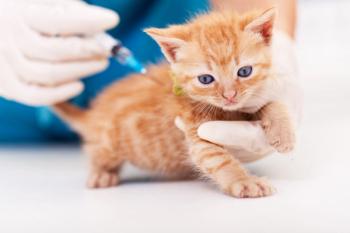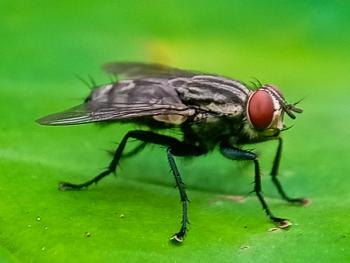
Something’s in the water: Human impact on guppy behavior
An overview of research regarding environmental factors on the behavior and survival traits of wild guppies
Both natural and artificial changes in an organism’s habitat can alter its behavior. While species often adapt over time to increase their survival rate and overall health, some animals have been exhibiting maladaptive changes that are concerning to researchers.
Two separate studies were conducted to evaluate the effect of living conditions on the behaviors of Trinidadian guppies. One study from the Journal of Fish Biology tried to link female guppies’ behavior to both the size of their environment and the number of other guppies they were kept with by using a judgment bias test.1
Judgment bias tests are used to determine animals’ mental state and health. Animals are trained to recognize reward and no reward signals and then are given an ambiguous signal that they would not recognize. The speed of responding to the ambiguous signal indicates an animal’s mental state. The more time a guppy took to respond to the ambiguous cue, the more negative their mental state and pessimistic their bias while the less time, the more positive.
The researchers hypothesized the guppies kept in a denser population would have a shorter latency time when presented with the cue due to a smaller chance of predation. However, the latency times in less populated tanks was similar. They also found no statistically significant difference in time to respond between the guppies kept in larger and smaller tanks.1
This study is lacking in that it could not measure whether these conditions are generally perceived by the guppies as equally stressful; further research on this topic is needed. However, the information that was obtained was extremely valuable for animal husbandry, research, and catch and release programs. Animals that can be kept in the least stressful conditions will be more like their wild counterparts and provide more accurate data.
While lab conditions are a closed space directly and exclusively controlled by humans, humans have a significant impact on Trinidadian guppies’ natural environment causing behavioral changes that extend beyond these prey fish. Climate change combined with urban development has led to an increase in freshwater temperatures and turbidity-cloudiness caused by solids floating in the water. Prey fish such as guppies use these environmental cues to respond and properly adapt to predators.
A study from the University of Bristol observed the combination of warm, turbid waters on the behavior and avoidance of male Trinidadian guppies from their primary predator species, the blue acara.2 Using video surveillance, these researchers measured guppies’ activity levels, distance between members of their shoal, and the distance kept from the blue acara.
Both groups of fish were kept in separate, clear enclosures and could both see each other but had no input from any of their other senses. The researchers observed fish and their interactions were in clearwater matching the temperature of their natural environment, warm water, turbid water, and water that was both turbid and warmer in temperature.
When in warm temperature water, guppies had an increased activity level—measured by speed—and swam closer together. It was also observed that in warm water, the distance between guppies and the acara was shorter. Turbid conditions alone did not appear to alter the guppies’ activity level; however, the guppies were also found closer to the acara and spread farther away from the other members of their shoal in waters of decreased clarity. This may be due to the lower perceived risk of predation as the guppies could not see the acara until they were closer.2
It was only in the water that closely mimicked the ideal natural environment of the fish that predator-prey distance was the greatest. The observed, combined environmental stressors reduced the Trinidadian guppies’ abilities to avoid their natural predators.2
While this study does not measure the other natural abilities of prey fish (eg, sense of smell) to avoid predators, it did provide key information on an animal’s reduced survival tactics when faced with a fluctuating, stressful environment. Further research on this topic should include studies focused on changes in predator species’ behavior due to these conditions, and how these environmental changes affect the mental state of predators and prey.
Both studies and future related works detail the extent to which human activity, for research or other purposes, can affect the biodiversity and stability of aquatic ecosystems and highlights the need for more holistic and integrative approaches to research.
References
- Epping J, Kotrschal A, Kotrschal SD. Insights from the judgement bias paradigm: Social group and tank size do not affect mental state in female guppies. J Fish Biol. 2023. doi:10.1111/jfb.15481
- Zanghi C, Munro M, Ioannou CC. Temperature and turbidity interact synergistically to alter anti-predator behaviour in the Trinidadian guppy. Proc Biol Sci. 2023;290(2002):20230961. doi: 10.1098/rspb.2023.0961
Ms Erlingheuser is a 2024 PharmD Candidate at the University of Connecticut.
Newsletter
From exam room tips to practice management insights, get trusted veterinary news delivered straight to your inbox—subscribe to dvm360.






